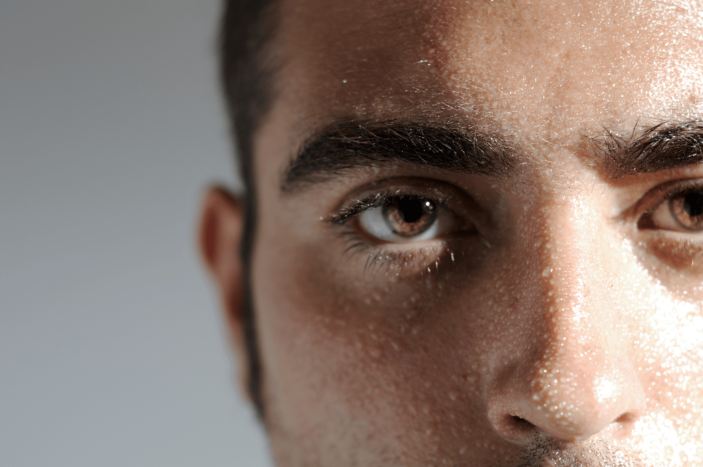Contents:
- Medical Video: Guillain-Barré Syndrome - Mayo Clinic
- What is Miller Fisher syndrome?
- What causes Fisher's syndrome?
- Who is at risk of developing this neurological disorder?
- What are the symptoms of Miller Fisher syndrome?
- What are the treatment options for Miller Fisher syndrome?
Medical Video: Guillain-Barré Syndrome - Mayo Clinic
For most people, smiling, stepping, even blinking does not require a lot of energy. You can even do these basic body functions without thinking because they are regulated by good nerve and muscle coordination. However, this is not shared by a handful of people who have Miller Fisher syndrome.
What is Miller Fisher syndrome?
The name Miller Fisher syndrome is taken from the name of the inventor, Dr. C. Miller Fisher. Miller Fisher syndrome (MFS) or abbreviated Fisher syndrome is one of the "children" of a rare nerve disorder called Guillain-Barre syndrome. Both are autoimmune diseases that occur when the body's immune system turns to attack the healthy nervous system, instead of fighting foreign substances that cause disease. However, MFS is not as severe as the condition of Guillain-Barre syndrome.
Typical nerve disorders Fisher's syndrome occur in the peripheral nervous system, and usually develop rapidly in a matter of days. This syndrome is characterized by three main problems: weakness of the facial muscles (drooping eyelids and difficult expression), poor coordination and body balance, and loss of reflexes.
What causes Fisher's syndrome?
The cause of Fisher's syndrome is not fully understood, but is often triggered by viral infection. Most often the flu virus or virus causes gastroenteritis (stomach flu). Symptoms of general flu, mono, diarrhea, or other diseases commonly reported appear to precede the symptoms of MFS.
Some researchers suspect that antibodies produced by the body when fighting infections can cause damage to the myelin sheath lining the peripheral nerves. The peripheral nervous system functions to connect the central nervous system to the sensory organs, such as the eyes and ears, and to other body organs such as muscles, blood vessels, and glands.
When myelin is damaged, the nerve cannot send sensory signals properly to get to the muscles of the body part that you want to move. That's why muscle weakness is a major characteristic of this syndrome.
Even so, not all people infected with the virus will automatically experience Fisher's syndrome. This syndrome is a very rare condition. In most cases the cause is unknown. Honly, they suddenly showed symptoms of Miller Fisher.
Who is at risk of developing this neurological disorder?
As reported in the Healthline page, anyone can actually experience MFS, but some people are more prone to experience it.
The group of people who are susceptible to experiencing Miller Fisher are:
- boy. The Journal of the American Osteopathic Association reports that men are twice as likely to experience Miller Fisher as women.
- Middle age. The average age of people who experience this syndrome is 43 years.
- East Asian races, especially Taiwan or Japan.
Some people may also get MFS after vaccination or surgery.
What are the symptoms of Miller Fisher syndrome?
Symptoms of MFS usually come quickly. Symptoms of Miller Fisher syndrome generally begin to appear around one to four weeks after being infected with the virus. This speed of symptoms is what distinguishes it from other gradual nerve disorders such as Alzheimer's, Parkinson's, or ALS.
MFS generally starts with weakness in the eye muscles that continues to the lower part of the body. Symptoms of Fisher's syndrome include:
- Loss and control of body movements, including weakness or uncontrolled movements.
- Loss of movement reflexes, especially in the knees and ankles.
- Blurred vision.
- Double vision.
- The facial muscles weaken, which is characterized by a drooping drooping face.
- Unable to smile, whistle, speak slurred, have difficulty keeping eyes open.
- The body's balance and coordination deteriorate, so it can potentially fall easily.
- Blurred vision or double vision.
- Difficulty urinating, in a number of cases.
Many people with MFS difficulties walk upright or run very slowly. Some show a gurgling gait like a duck.
What are the treatment options for Miller Fisher syndrome?
There is no specific cure for Miller Fisher syndrome. According to the National Institute of Neurological Disorders and Stroke (NINDS), there are two main treatment options for MFS. The first is an injection of immunoglobulin containing high-dose protein into a blood vessel. The goal is to strengthen the immune system against infection and accelerate recovery.
The alternative is plasapheresis, a plasma exchange procedure to cleanse the blood. After cleaning, the blood cells are returned again in the body. This procedure takes hours and is more difficult than immunoglobulin therapy. That's why most doctors will prioritize immunogloblin injections compared to plasmafaresis.
In most cases, treatment of Miller Fisher syndrome begins within 2-4 weeks of the onset of symptoms and continues for up to 6 months. Most people can immediately recover completely after finishing therapy. However, some people can experience lasting effects so symptoms can recur at any time, although it is rare.















